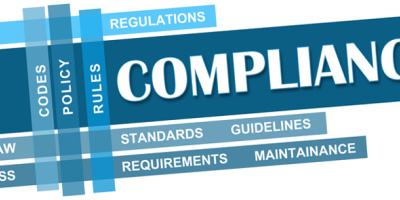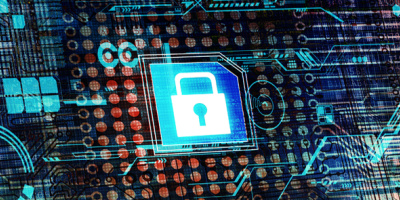Using a random-number generator, however, can give you an unbreakable password.
I've been writing for the past few weeks about security and encryption and ways to take care of yourself and your computer in the face of some pretty--shall we say--"obsessive behavior" by numerous people using the Internet who aren't very nice.
I have to confess that when I thought up my most common password, variations of which I use for just about everything, I imagined a classroom of sixth-graders sitting around trying to guess what it is. "No, Johnnie, that's not it! Try again!" I'm usually pretty good at guessing things myself, probably because I've read so many newspapers in my time that I've been exposed to a lot of information. One gal-pal challenged me to guess where her user ID came from, and I finally figured out it was the call sign, or tail number, from an airplane. Turned out the number had been on a plane owned by her father, who had since passed away.
One name I never guessed was the middle name of a gal I longed for when I was 22. She made guessing it a right of passage, for some reason, and I kept trying to guess it but never could. I finally read it in the newspaper in the notice of engagement--to someone else. Maybe he guessed it?
But here's the thing: Today, if someone is trying to get into your computer, they are not sitting around saying, "Could his password be his birthday? What about his social security number? Maybe he uses his street address?" And for some of us, they probably would guess it that way outright, but no, they are using very sophisticated software programs that already have tables of passwords that people have previously shown they already use. They are using botnets (robot networks) that employ the resources of not hundreds, but thousands of computers around the world that will try every conceivable possible password until they get it right in order to hack into your or your company's computer files. Now if your password is your son's birthday, just how long do you think such a password is going to hold up against such an onslaught?
"Oh, but we have nothing to steal. Why would anyone be interested in breaking into our computer? Besides, there are so many computers out there. By the time they get around to ours, we'll probably be dead." Such is the mindset of a lot of people who use "sexylady" or "joanie123" as passwords. Well, if you are so sure no one is going to break into your computer, then why bother with any password at all? Sadly, that is exactly the conclusion that many people today come to. They simply choose, quite consciously, not to secure their computers at any level. It's too much work.
If you're one of those people, then stop reading this article right now. I can't help you. No one can help you. You're beyond help. However, if you're someone who cares about your property and the property of others possibly in your charge, someone who wants to use a password that really can stop a tank, then I'll tell you how you can get some really brawny, really sinewy, well, essentially un-guessable passwords. This, of course, is especially important when configuring a wireless WEP or WPA network.
Come on down to Perfect Passwords. This is a site operated by a guy named Steve Gibson of Gibson Research Corp. (thus http://www.grc.com/), and it's quite amazing. Perfect Passwords is just one of the free services Steve offers while he's inviting people to his site from where he sells software, which you will probably be intrigued by too once you visit. I won't go into the other products or areas of the site, but Perfect Passwords is where you can go to get really bulletproof passwords. As Steve says on his site, "generating long, high-quality random passwords is not simple."
Each time the Perfect Passwords page is displayed, the GRC server generates a unique set of custom, high-quality, cryptographic-strength password strings that are as close to being unbreakable as you can get. The way it works is pretty simple but elegantly clever. Every time you click your browser's refresh button, the password strings change. The cool thing about them? They are as close to completely random as you can get. He calls it "pseudo random," but he's a purist. The passwords are 256 binary bits, which result from a string of 64 hex characters, since each character encodes 4 bits of binary data. Of course, you have to have network devices that allow the 256-bit key material to be specified as raw hex. Since many don't, you might consider running two WiFi networks in parallel or using weaker WEP encryption. But as even Steve concedes finally, "any encryption is better than no encryption."
When you look at these passwords produced by a random-number generator, ask yourself again if your imaginary sixth-grade class could even come close to guessing them. I think you will agree that the answer is no, no, a billion times no.






















 More than ever, there is a demand for IT to deliver innovation. Your IBM i has been an essential part of your business operations for years. However, your organization may struggle to maintain the current system and implement new projects. The thousands of customers we've worked with and surveyed state that expectations regarding the digital footprint and vision of the company are not aligned with the current IT environment.
More than ever, there is a demand for IT to deliver innovation. Your IBM i has been an essential part of your business operations for years. However, your organization may struggle to maintain the current system and implement new projects. The thousands of customers we've worked with and surveyed state that expectations regarding the digital footprint and vision of the company are not aligned with the current IT environment. TRY the one package that solves all your document design and printing challenges on all your platforms. Produce bar code labels, electronic forms, ad hoc reports, and RFID tags – without programming! MarkMagic is the only document design and print solution that combines report writing, WYSIWYG label and forms design, and conditional printing in one integrated product. Make sure your data survives when catastrophe hits. Request your trial now! Request Now.
TRY the one package that solves all your document design and printing challenges on all your platforms. Produce bar code labels, electronic forms, ad hoc reports, and RFID tags – without programming! MarkMagic is the only document design and print solution that combines report writing, WYSIWYG label and forms design, and conditional printing in one integrated product. Make sure your data survives when catastrophe hits. Request your trial now! Request Now. Forms of ransomware has been around for over 30 years, and with more and more organizations suffering attacks each year, it continues to endure. What has made ransomware such a durable threat and what is the best way to combat it? In order to prevent ransomware, organizations must first understand how it works.
Forms of ransomware has been around for over 30 years, and with more and more organizations suffering attacks each year, it continues to endure. What has made ransomware such a durable threat and what is the best way to combat it? In order to prevent ransomware, organizations must first understand how it works. Disaster protection is vital to every business. Yet, it often consists of patched together procedures that are prone to error. From automatic backups to data encryption to media management, Robot automates the routine (yet often complex) tasks of iSeries backup and recovery, saving you time and money and making the process safer and more reliable. Automate your backups with the Robot Backup and Recovery Solution. Key features include:
Disaster protection is vital to every business. Yet, it often consists of patched together procedures that are prone to error. From automatic backups to data encryption to media management, Robot automates the routine (yet often complex) tasks of iSeries backup and recovery, saving you time and money and making the process safer and more reliable. Automate your backups with the Robot Backup and Recovery Solution. Key features include: Business users want new applications now. Market and regulatory pressures require faster application updates and delivery into production. Your IBM i developers may be approaching retirement, and you see no sure way to fill their positions with experienced developers. In addition, you may be caught between maintaining your existing applications and the uncertainty of moving to something new.
Business users want new applications now. Market and regulatory pressures require faster application updates and delivery into production. Your IBM i developers may be approaching retirement, and you see no sure way to fill their positions with experienced developers. In addition, you may be caught between maintaining your existing applications and the uncertainty of moving to something new. IT managers hoping to find new IBM i talent are discovering that the pool of experienced RPG programmers and operators or administrators with intimate knowledge of the operating system and the applications that run on it is small. This begs the question: How will you manage the platform that supports such a big part of your business? This guide offers strategies and software suggestions to help you plan IT staffing and resources and smooth the transition after your AS/400 talent retires. Read on to learn:
IT managers hoping to find new IBM i talent are discovering that the pool of experienced RPG programmers and operators or administrators with intimate knowledge of the operating system and the applications that run on it is small. This begs the question: How will you manage the platform that supports such a big part of your business? This guide offers strategies and software suggestions to help you plan IT staffing and resources and smooth the transition after your AS/400 talent retires. Read on to learn:
LATEST COMMENTS
MC Press Online